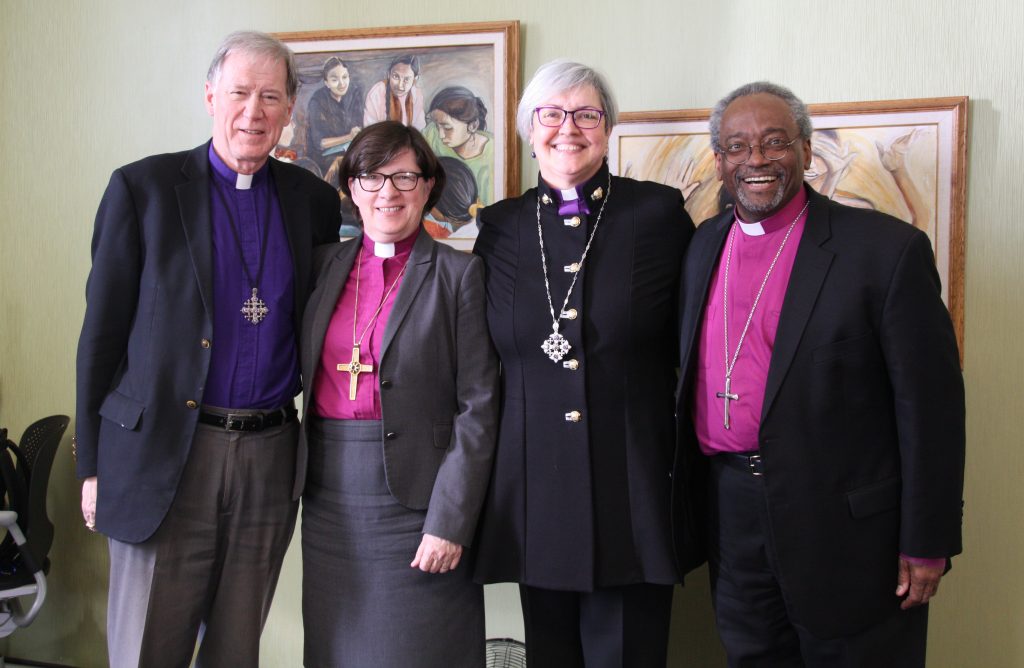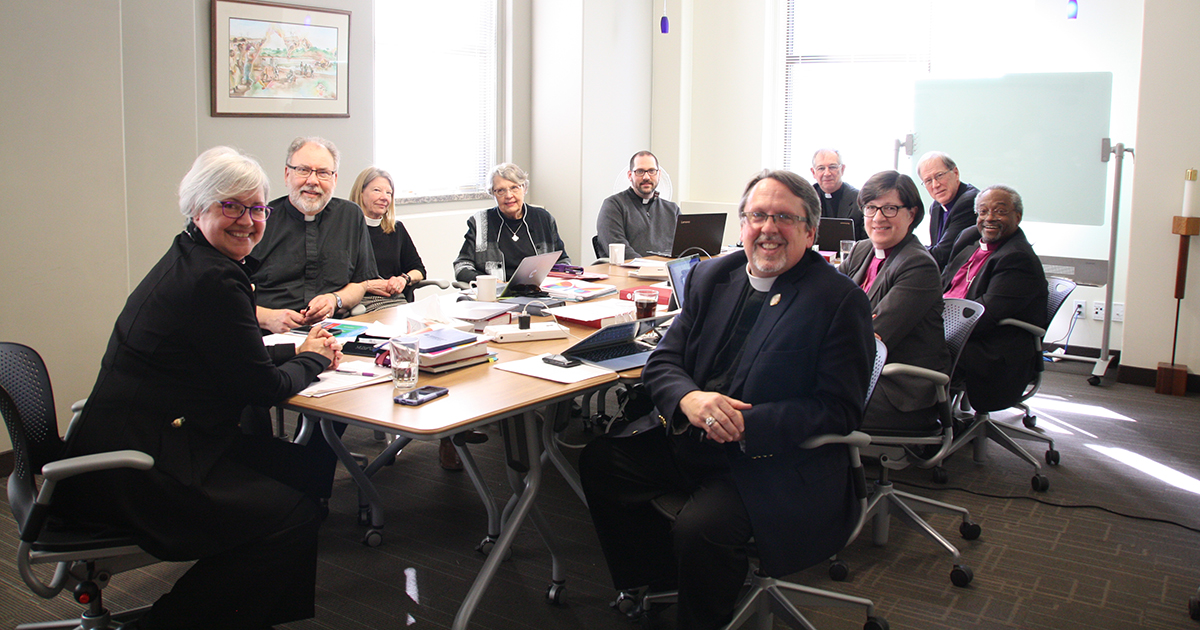The changing nature of ministry in the 21st century, and consequent need for new kinds of Christian leadership, was a major focus of the recent joint meeting between leaders of the Anglican and Lutheran churches in Canada and the United States.
Archbishop and Primate Fred Hiltz of the Anglican Church of Canada, National Bishop Susan Johnson of the Evangelical Lutheran Church in Canada (ELCIC), Presiding Bishop and Primate Michael Curry of The Episcopal Church, and Presiding Bishop Elizabeth Eaton of the Evangelical Lutheran Church in America (ELCA) gathered together at the ELCIC National Office in Winnipeg from March 13-15 to discuss issues of common concern to all four churches. Accompanying each of the four Primatial bishops were key staff members with knowledge related to various items on the agenda.
Much of the conversation centred on what the Rev. Dr. Scott Sharman, animator for ecumenical and interfaith relations for the Anglican Church of Canada, described as “being in a time of transition, but wanting to think through questions of formation and education … There was a lot of focus around how that happens in each church, and some of the challenges facing current models of education in a seminary context and what kinds of steps are being taken to do that maybe a little bit differently.”
In response to those challenges, the four church leaders expressed a desire to host a consultation on education and formation for Christian leadership. That consultation is expected to take place in conjunction with the next four-way meeting between the churches, which will take place in Toronto in May 2019.
“One of the biggest outcomes of this particular meeting is that there was a consensus expressed by the four bishops that they would like to be intentional about tackling some of those questions together, so that the kinds of leaders and clergy that are being formed in each tradition are prepared for some of the common challenges,” Sharman said.
Another outcome of this year’s meeting was a plan to issue a common statement on the importance of communal discernment and decision-making, reflecting the fact that all four churches will hold meetings of their primary decision-making bodies within a relatively short time in 2018 and 2019.
“Each of the four churches, the Anglican and Lutheran churches, have a special connection with one another and concern for the decisions that they’re making together, and see themselves as in some way impacted by the decisions that these different synods and conventions make,” Sharman said.
Deepening the relationship between the churches in Canada and the United States was a further topic of discussion at the four-way meeting.

Currently, separate full communion relationships exist between Anglicans and Lutherans in Canada and the United States. The Anglican Church of Canada is in full communion with both The Episcopal Church and the ELCIC. The ELCIC is in full communion with the ELCA, which in turn is in full communion with The Epicopal Church, creating a resulting overlap in traditions that has not yet been formalized.
With the full communion relationships between Anglican and Lutheran churches in the United States and Canada approaching their 20-year anniversaries in 2019 and 2021, respectively, the four churches are pondering a new agreement in advance of the anniversaries to clarify the constitutional and canonical implications of their relationships together.
A first step in that direction might be an agreement to facilitate the transferability of clergy across the Canada-U.S. border between the four churches, as well as a recognition of the transferability of their orders and ministries.
Reflecting on the March gathering, Primate Hiltz highlighted these efforts to “make portable” full communion arrangements to help clergy move freely between the four churches—as well as plans for the Toronto consultation to help discern and equip candidates for Christian leadership—as examples of the effectiveness of the annual four-way meeting, which first took place in 2010.
“I think that the value of the four-way meeting proves itself every time we meet—that there’s value in us meeting in terms of information sharing, mutual support and encouragement, and discernment of areas in which we could be working together more closely,” the Primate said.
He added, “It’s just proven to be a really good thing in terms of building relationships among the four churches.”
Interested in keeping up-to-date on news, opinion, events and resources from the Anglican Church of Canada? Sign up for our email alerts .

